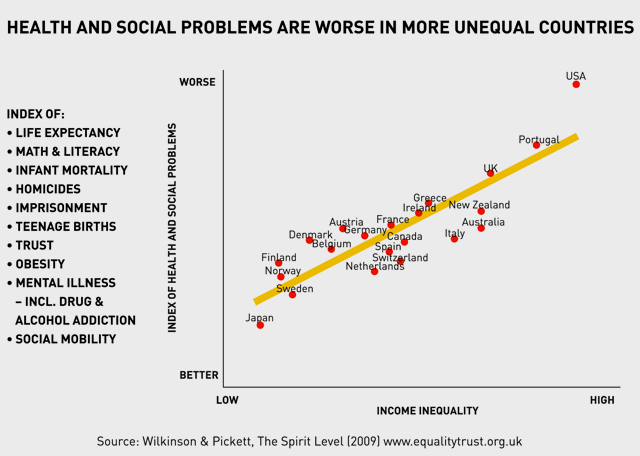
Why Religion Facilitates Crime and Immorality
Christopher Moltisanti is in hospital with a bad gunshot wound. Everyone in the extended family, especially Carmela and Tony Soprano, brood on their sins and their relationship to God, to religion, and to the Roman Catholic Church. (The Sopranos, season 2, episode 9: From Where to Eternity
)
However, the episode concludes with everything returning to normal.
Christopher recovers and picks up his life in crime where he left off. So does Tony. And Carmela, as always, does—nothing. She remains at Tony’s side, forever enabling him in his career as professional criminal. As always, the occasional onset of moral anxiety amongst the members of the Soprano family does not bring about any permanent changes in any of them.
One might wonder: how is it even possible for ruthless criminals such as these, and for their enablers, to be regular churchgoers, to be deeply and profoundly religious, and to consider themselves true catholics? This is of course the completely wrong question to ask oneself. It makes so much more sense to ask: why do so many of us tend to assume that religious faith will make people better?
Fyodor Dostoyevsky in his novel The Brothers Karamazov (1880) famously declared that if people did not believe in God, there would be more immorality and crime. Dostoyevsky was convinced that if people do not fear punishment from God after death, they automatically become thieves and rapists and murderers—while in fact, and contrary to what Dostoyevsky would have expected, global secularization in the twentieth and 21st centuries has brought more lawfulness and higher moral standards to the world than organized religion was ever able to bring for thousands of years.
Plenty of statistics prove that truly secularized societies enjoy greater financial equality and greater gender equality, their citizens are more law-abiding, are less corrupt, experience less crime and fewer murders, put fewer people in jail, and trust their neighbors more than the citizens of religious nations do. Believers do not behave better
than atheists. If anything, religious people behave worse. Transgressing secular law is never a completely foreign concept to a deeply religious person.
Religious people are often perceived by nonbelievers as strict,
but all religious systems of morality are in reality extremely pliable, flexible and fluid things. One can always find a religious reason for transgressing secular law and, say, start murdering doctors who performs perfectly legal abortions. Or start robbing banks. One can always find a religious reason for pretty much any act, also for violent and sexist and racist acts, say. In the religious universe there never is a clear, undisputed line drawn between acceptable and unacceptable behavior.
By contrast, in the nonbeliever’s universe, there actually is such a clear, undisputed line—the line drawn in secular law between legal
and illegal.
In secular society, and to nonreligious people, that which is lawful
(albeit often an arbitrary distinction; in some countries it’s illegal to drive on the right side of the road, in other countries it’s illegal to drive on left side) is a very important distinction indeed. It is tangible, it is concrete, anyone can tell you without much hesitation what is legal and what is not. Not much room for doubt or confusion. To break the laws of secular society and to cross the border into lawlessness thus becomes—psychologically and morally—a very great leap indeed to make for the nonbeliever. (Much greater than for religious folk.) And most nonbelievers find great comfort and take great pride in being law-abiding citizens. (Non-believers find much more comfort and take greater pride in this than religious people do.)
In addition, religious people believe in a universe of hierarchies, in the existence of entities above
us mere mortals (gods, goddesses) as well as entities beneath
us mere mortals (demons). And to the believer, the psychological leap between (a) placing only metaphysical entities above and beneath oneself, and (b) to also start placing other mere mortals above oneself (saints, nuns, priests) as well as beneath oneself (adulterers, homosexuals, thieves, confessors to other religions than one’s own, people of other nationalities or races) on the hierarchical steps of that very same metaphysical ladder is of course a very short psychological leap indeed.
Once the believer makes that (very short) leap of faith, from thinking (a) to thinking (b), the concept of metaphysical hierarchies begins also to serve worldly and political and nationalist and racist purposes. The metaphysics of religion thus not only distills in people the fear of God, but—extrapolated into the everyday—facilitates looking down on and despising and debasing just about anybody.
This is an important point to make, especially these days, because in today’s infected public debate about religiously motivated terrorism and extremist violence in religion’s name, one often hears religious people referring to their particular religion or religious denomination as an especially peace loving
one. Thus presupposing that those deeply religious individuals who are committing very violent acts of terrorism in the name of religion (as well as those theocratic, religious nations that are making war also in the name of religion) merely are sad exceptions to the (religious) rule of thumb that religious people are better
than other people. When are religious people going to admit to themselves that violence is not an anomaly, but a normal occurrence in religion? Violence is something to be expected from both extremist individuals and organized mainstream religion. I, for one, certainly expect religious people to be prone to violence. If religious people seem peace loving
and meek, the way I see it, they simply aren’t that much into it; they simply aren’t that religious to begin with...
By contrast, the secularized mind has no concept of a metaphysical ladder of hierarchy between entities, or people for that matter. The psychological and political and moral leap into placing other mere mortals above or—more alarmingly—beneath oneself is much greater for nonreligious people than for religious people. No wonder atheists are more likely to actually practice the golden rule, for instance. No wonder secularized nations are more democratic, more egalitarian, less corrupt, less violent and more peace loving.
Dostoyevsky Was Wrong
Dostoyevsky was obviously wrong. In fact, religious people in general are wrong. Religion does not bring higher moral standards to societies. Religion will never do away with disdain or oppression or violence or crime. On the contrary, religion facilitates crime and immorality, facilitates moral double standards and warfare. Religion is not something harmless and cute. Religion is bad for you!
It can, however, be argued that before a certain nation or society has reached a certain level of social and industrial development, organized religion probably serves that nation or society very well, providing productive rules and institutions for both public life and private life. But once a certain standard of wealth and science and art has been reached, a profound and far-reaching secularization of all laws and institutions is the thing that serves any affluent, advanced, and modern society best. Thus, in the miserable 19th century Russia, with all that famine and serfdom, Dostoyevsky perhaps had a point (on how to best police the ignorant underclass)—but just a few decades later, the emancipated and affluent post WWII Scandinavia and Japan prove him wrong. Religion is not the best way to police reasonably educated and affluent societies, it turns out secularization is.
For the record—in distinguishing between organized religion’s (positive?) effect on underdeveloped, premodern societies on the one hand, and organized religion’s (negative!) effect on modern, developed, affluent societies on the other hand, I owe part of my argument to Wilkinson and Pickett and their recently published and much debated book The Spirit Level: Why More Equal Societies Almost Always Do Better (London, 2009). The separation Wilkinson and Pickett make in their book between modern, affluent, Western democracies (which constitute the subject matter of their book) and underdeveloped countries (not the subject matter of their book) makes sense also (I would argue) for a discussion about religiousness and secularization. Wilkinson and Pickett themselves never discuss or even mention religiousness or secularization as factors that could influence the welfare of a certain society’s or nation’s citizens. This (I would argue) is a considerable flaw with their book—because it is impossible to understand how societies function without weighing in the effects of religiousness and secularization.
Wilkinson and Pickett begin by stating that in premodern societies, a growing economy and personal financial gain is a positive thing, of course: before there are decent roads and sewage systems available to everyone, and before everyone can afford decent food and an education, everyone gains from economic growth and higher material standards. But—and this is their important finding—once decent material standards have been reached, further personal financial gain will not make people happier, or longer living, or less afflicted by sickness or crime; only greater equality will make people in (already affluent) societies live longer and happier than before. This claim of Wilkinson and Pickett is supported by droves of international statistics, from UNESCO and other reliable sources, presented in actually really fascinating graphs and diagrams that contradict everything you thought you knew about physical health, mental health, social mobility, violence, crime, punishment, etc.

Wilkinson and Pickett are very convincing when arguing that one has to separate between underdeveloped and affluent nations when investigating how to improve life for people in modern, Western nations. That goes for my discourse of religion and secularization as well. This part of my argument I owe to them.
They are also very convincing in conveying the message that just more and more money will not make us modern, affluent Westerners any happier. But contrary to Wilkinson and Pickett, I would argue that it is not financial and social equality per se that causes the wellbeing of the citizens in the happiest nations on earth, it is in fact instead the secularization of those nations that is the primary cause. The benefits of financial and social equality are merely the secondary effect and indirect function of the general secularization of societies and institutions in the West.
Don’t get me wrong: I really love the attempt of Wilkinson and Pickett at providing a social and political theory of everything.
Kudos! And they almost got it right! They just got a little confused about cause and effect when it came to inequality and religiousness (a case of the chicken and the egg
). After all, those nations that rate the highest in Wilkinson’s and Pickett’s diagrams are without exception the world’s most secularized nations! And that is of course no coincidence: financial and social equality of course follows from secularization. It is after all not until organized religion’s patriarchal hierarchies have been questioned—and defeated—by secular institutions that it is even possible for the rulers (and/or voters) of a certain society to even conceive of the financial and social equality that has become so emblematic of the (secularized) Western welfare state.
Now, that should be an even more convincing outline of a really comprehensive social theory of everything
for you! And this time including (not excluding, as Wilkinson and Pickett do) the crucial effect of secularization on the welfare of societies. I therefore hereby suggest that the variable income inequality
could—and should—be replaced by the variable religiousness
in the graphs and diagrams of The Spirit Level. All those graphs and diagrams of Wilkinson’s and Pickett’s book would still turn out just the same.
Djisöss Krajst!!!) in Supermarket Magazine, Stockholm, Sweden, issue #1-2011, with illustrations by Mikael Askergren:
Exclamations of Astonishment and Horror in Speech Balloons
When Prophecy Fails
Det finns ingen religiös konst
Det finns ingen religiös arkitektur
See also:
Religion is kitsch (Video)
Illustrations
• Diagram/graph above, showing the detrimental effects of financial and social inequality on society, from The Spirit Level (London 2009), by Richard Wilkinson and Kate Pickett of The Equality Trust, London, UK.